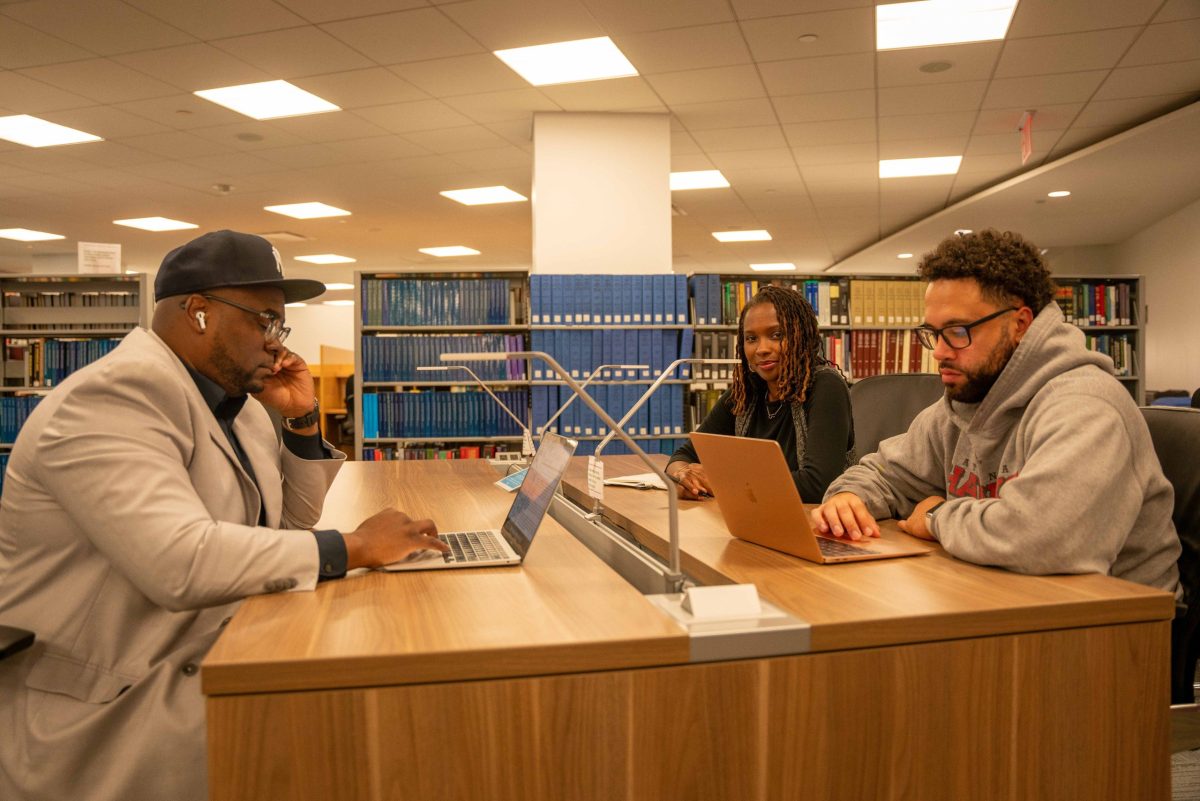The Center for Diversity in the Legal Profession’s award from the Black, Race, and Ethnic Studies Initiative as part of an historic University undertaking

In order to increase the number of people of color and other people historically and currently underrepresented in the legal profession, CUNY School of Law is reestablishing its Center for Diversity in the Legal Profession (CDLP). Exclusionary by design, the legal profession is one of the least diverse professional fields in the nation; racial diversity in the profession has not improved significantly in more than a decade.
While CUNY Law has always been on the front lines of creating a more inclusive legal community, with 52.7% of students and 45.8% of full-time faculty self-identifying as BIPOC in 2021, it is looking to new ways to make an impact.
The Center will focus on making legal knowledge, education, and practice more accessible to individuals who have directly experienced the punitive weight of surveillance, incarceration, and criminalization in and by the legal system. The Center will also continue to advocate for greater equity and opportunity in the legal profession for marginalized communities, as it did when founded in 2009 by Professor Pamela Edwards.
One such effort is a project recently selected as an awardee of the Black, Race, and Ethnic Studies Initiative (BRESI), which is made possible by a generous gift from the Mellon Foundation. This historic CUNY initiative’s overarching goal is to reimagine and transform University programs in Black, Race, and Ethnic Studies and ours will be led by Professor Nicole Smith Futrell, Co-Director of the Defenders Clinic and the new Faculty Director of CDLP. “Portal to the Profession: Making Legal Education Accessible for System Impacted Communities of Color,” is poised to drive change at CUNY Law and beyond.
The centerpiece of the CDLP initiative is a new resource portal, complete with digital toolkits, training, and more, all designed to help guide prospective students from underrepresented and system-impacted communities on the path to becoming lawyers. It will also produce shared resources for law school leaders, administrators, admissions professionals, and court licensing officials will be created to help break down some of the barriers related to criminal history that keep people with lived experience with the law from joining the profession.
A cornerstone of this work is highlighting the racial justice implications of criminal history consideration in law schools and bar admissions. CUNY Law is the established leader on this issue thanks to the groundbreaking work done by CUNY Law’s Formerly Incarcerated Law Students Advocacy Association (FILSAA). FILSAA students researched and laid out both the case for, and the administrative steps to, update CUNY Law’s admissions application processes by removing all criminal history questions while ensuring students would be well-positioned for the New York State Bar’s Character and Fitness assessment. CUNY Law recognized this as an opportunity to expand the impact of its access mission and adopted the proposal, making it only the second law school in the nation to do so. Since then, students and administrators have been working to establish the effort as a blueprint for other law schools and a call to action for the New York State Bar. CDLP will advance that work by laying out research, resources, and training for other law schools and courts to do the same.
“This BRESI-funded project enables us to reignite the work of CDLP in supporting communities of color and system-impacted people who have been denied access to formal and informal legal education. People who have lived under the weight of the law are well-positioned to learn the law and transform it. Legal training and the ability to help others as a lawyer should be available to more than just a privileged few. I am excited to work in collaboration with the Center’s partners in FILSAA, Unlock the Bar, and CUNY Law’s Admissions Office and Pipeline to Justice Program, to develop resources that will help to build legal access, knowledge, and power in communities that have been marginalized by the law,” Nicole Smith Futrell notes.
Among the CUNY Law students working as Research Fellows for the Center are Chamma Brandon and Dylan James, 2L students who also serve as FILSAA executive board members. “Fighting to knock down the barriers that gatekeep the formerly incarcerated from entering this professional field of law is why I joined CDLP. The idea that we, the formerly incarcerated, lack the voice, desire, or acumen to compete at the highest levels within this profession has long been debunked. It begins with a conversation, then an agenda, and, before you know it, down come the barriers,” shares Chamma Brandon.
“I am working on this project because, as a formerly incarcerated law student of color, I believe increasing access to the legal field for others who identify like myself will serve to create more equity in a profession and society that are in dire need of it. Those who have been most affected by the oftentimes oppressive nature of various legal systems should be centered in the fight for creating a more just version,” says Dylan James.
CUNY Law’s faculty, staff, students, alumni, and allies — many of whom continue to be the fiercest advocates for breaking down systemic barriers — can look to CDLP as a space for collaboration and partnership in efforts to transform the legal profession and make legal education more accessible. This includes building upon the legacy of W. Haywood Burns, a prominent activist-lawyer dedicated to racial justice and civil rights and Dean of CUNY Law from 1987 to 1994. In 2023, under the auspices of CDLP, CUNY Law will honor Haywood’s vision of progressive lawyering with a reinstatement of the W. Haywood Burns Chair in Human and Civil Rights.
CDLP will build on CUNY Law’s innovative access mission through collaborative thought leadership, mentorship, advocacy, research, and community and prison legal education initiatives.
